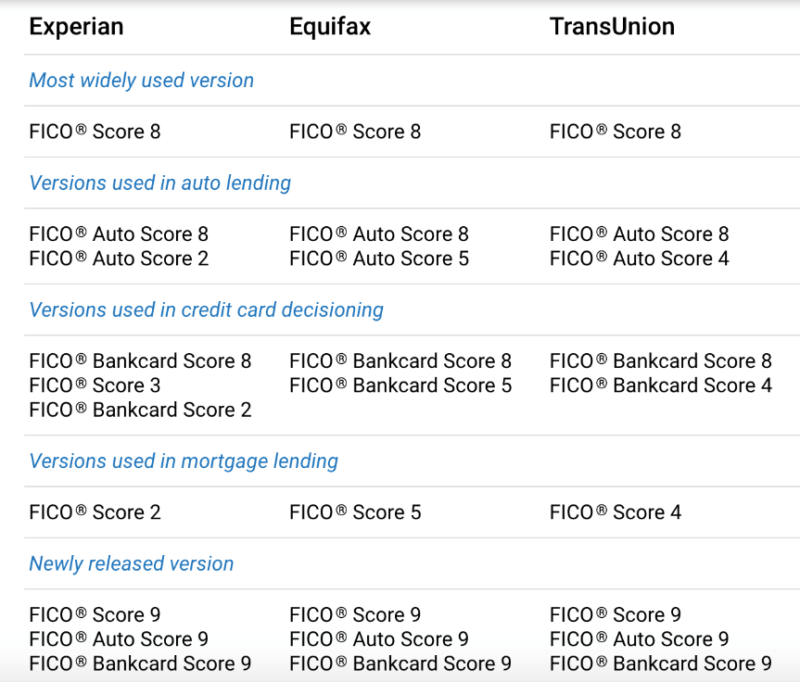A common misconception about credit scores is that the first one you see is “your credit score.” In reality, there are tons of scores out there for everyone and nobody has one single score at any moment. These scores are all representative of your credit history but are calculated differently, depending on what purpose they are being used for. As shown below, you have one credit history, but that can be calculated to produce different versions of the same data and credit bureaus do not always use the same version.

These versions, even within the same credit bureau, can sometimes vary by as much as 100 points. So can you trust the scores you find online through websites like Credit Karma? Yes and no. The most important information you can get from any one score is an idea about the “tier” you fall into. Whatever score you see can give you some sort of idea about this, but it will not always be accurate depending on what you are trying to do and which bureau you are using.
“Tiers” are a range of scores which categorize your credit as Excellent, Very Good, Good, Fair, and Poor. While different scores may put you in different tiers, you can get some idea of your standing.
For example, FICO is the most widely used scoring system and their tiers look like this:

It is also important to note that even if the same version of your score is pulled from each of these three bureaus, they may still differ.
The bureaus receive monthly reports of your credit usage to calculate your score, but the timing of these reports varies by bureau and lender. This means that the grouping of the data being used for the calculation of your score will vary and produce different numbers.
So why can your scores look so vastly different if they all take into account your singular credit history? If you look back at the table above, you will notice that it is sorted into different situations where you would need your credit score calculated: Auto lending, card decisioning, and mortgage lending, etc. In each of these cases, credit bureaus care more about different aspects of your credit. For example, the auto-loan version will weigh different aspects of your credit more or less heavily when calculating it than a mortgage lending version would. They are calculated differently based on the needs of the lender for the specific situation. How can you know which score will be pulled? Lenders who pull two scores will often use the lower one while lenders who pull three scores often use the middle one. This is not a hard and fast rule, but it is an extremely common method.
However, while sometimes certain things will matter more or less, the same things impact all scores to some degree. An increase in one score will be an increase in all scores and the same goes for decreases. The degree of increase or decrease may vary per score, but it will always be accounted for.
The Takeaway
While the question of what your credit score “really” is does not have an answer, you can usually have some idea of which tier you fall into. You can have many different scores at any time, based upon the timing of the calculation or the needs of who is calculating it. The good news is that no matter who is calculating it, positive changes to your credit will always increase your scores. On the downside though, a negative change will impact them all as well, but you do have control over them no matter what.



